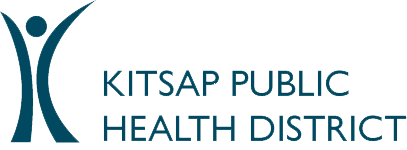
An ongoing global outbreak of highly pathogenic avian influenza (HPAI) in wild birds, with transmission to poultry and certain mammals including dairy cattle, has resulted in nine confirmed cases of HPAI in humans in the United States in 2024.
To date, there have been no human cases of HPAI confirmed in Washington; however, clinicians should remain vigilant for patients presenting with potential symptoms of HPAI. Clinicians in Washington are encouraged to consider HPAI infection in patients who present with influenza-like illness (ILI), and to assess patients presenting with ILI for animal exposures.
ACTIONS REQUESTED
CONSIDER highly pathogenic avian influenza (HPAI) H5N1 and other novel influenza virus infections in the differential for patients who present with influenza-like illness (ILI) or isolated conjunctivitis and have one or more of the following risk factors:
- Exposure to cattle or pigs
- Attendance at agricultural fairs or other livestock exhibitions
- Consumption of unpasteurized (raw) dairy products
- Exposure to sick or dead wildlife
- Contact with birds or other animals with known or suspected avian influenza virus infection
CONSIDER testing for novel influenza for patients with ILI who endorse any of the above exposures in the past ten days and have no alternative diagnosis. Contact your local health jurisdiction for guidance on specimen collection and testing.
IF NOVEL INFLUENZA INFECTION IS SUSPECTED:
- Contact your local health jurisdiction, Kitsap Public Health District (KPHD), immediately to help arrange sample collection and testing at the Washington State Public Health Laboratories (WA PHL). Call KPHD at 360-728-2235 for assistance.
- Preferred respiratory specimens for influenza virus testing include a nasopharyngeal or nasal swab, or a nasal wash or aspirate. Nasal and throat swabs combined in the same specimen increases detection of influenza viruses than either specimen type alone, and conjunctival swabs should be considered for those with conjunctivitis.
- Empiric antiviral treatment should be started as soon as possible for patients suspected to be infected with novel influenza A viruses as they have the potential to cause severe disease in humans.
- Your local health jurisdiction may be able to assist you in acquiring antiviral medications. Call KPHD at 360-728-2235 if you need assistance.
- For more information, see the CDC’s interim guidance on the use of antiviral medications for treatment of human infections with novel influenza A viruses associated with severe human disease.
BACKGROUND
This outbreak of highly pathogenic avian influenza (HPAI) is a strain of influenza A (H5N1) has been circulating globally in wild birds for several years. As the name suggests, HPAI infection has been deadly for many species of birds.
Cases of HPAI in wild birds and poultry were first identified in Washington state in the spring of 2022. Since 2022, WA state agencies have detected infections in commercial and backyard poultry flocks, as well as sporadic infections of wild mammals such as skunks, raccoons, and harbor seals.
Avian influenza viruses had not previously been known to infect cattle, but in March 2024, HPAI H5N1 infection was reported in dairy cattle in Texas. As of July 14, the HPAI H5N1 outbreak in dairy cattle has continued to spread, with outbreaks in dairy cattle now identified in 13 US states. While outbreaks of HPAI H5N1 have NOT been identified in dairy cattle in Washington, infections have been identified in neighboring states, including at least 21 dairy operations in Idaho.
The outbreak has also spread to poultry; 48 states report outbreaks.
Nine avian influenza A(H5N1) infections in workers exposed to infected dairy cattle and poultry have been detected since March 2024 in three states: Texas, Michigan, and Colorado. Three infected workers had conjunctivitis as a sole symptom with no respiratory symptoms. Five infected workers reported conjunctivitis and eye tearing as well as flu-like symptoms of fever, chills, coughing and sore throat/runny nose. One had mild respiratory symptoms.
According to the U.S. Centers for Disease Control and Prevention, the current risk to the general public is low. However, it is important to understand and prepare for possible avian influenza and novel influenza infections in humans, as infections can range in severity and certain occupations are at increased risk of exposure to infected animals.
Rapid detection of, and treatment for, novel influenza A viruses and efforts to reduce transmission to other people remain important components of national efforts to prevent the emergence of new viruses that could have pandemic potential. To accomplish this, testing for influenza viruses and monitoring for novel influenza A virus infections should continue year-round.
MORE RESOURCES
- USDA’s Detections of Highly Pathogenic Avian Influenza page
- CDC’s Clinical Overview of Evaluating and Managing Patients Exposed to Birds Infected with Avian Influenza A
- CDC’s H5N1 Bird Flu: Current Situation page
- DOH’s Avian Influenza page
CONTACTING THE HEALTH DISTRICT
Call us at 360-728-2235 and you will be routed to the appropriate program. Includes reporting notifiable conditions 24 hours a day, 7 days a week.
This advisory is also posted on the health advisory page of our Provider Resources website, providers.kitsappublichealth.org.
